ONGOING Projects at Aquatic ECOLOGY CENTRE
South Asian Nitrogen Hub (SANH)
Time Frame: 2019-2024
Summary: Nitrogen pollution damages human health, threatens biodiversity of forests, rivers, and leads to coastal and marine pollution that exacerbates the effects of climate change. South Asian Nitrogen Hub will study the impacts of the different forms of pollution to form a coherent picture of the nitrogen cycle and will work towards tackling Sustainable Development Goals. In particular, it will look at “Nitrogen” in eight countries – India, Nepal, Pakistan, Bangladesh, Afghanistan, Sri Lanka, Bhutan, and Maldives. The Hub seeks to improve nitrogen management in agriculture, saving money on fertilizers and making better use of manure, urine, and natural nitrogen fixation process. Moreover, the nitrogen pollution and its effect on forest ecology, especially in Lichen communities being assessed.
Investigators: Prof. Dr. Subodh Sharma, Dr. Rajendra Joshi, Dr. Bishnu Prasad Pandey, and Dr. Kundan Lal Shrestha
Researchers: Mr. Suman Prakash Pradhan, Mr. Prayon Joshi, Mr. Rakesh Shrestha, Mr. Hirendra Bista, and Mr. Bishal Lamsal
Collaborating Partners: Kathmandu University, Nepal, Tribhuvan University, Nepal, TERI School of Advanced Studies, India, Royal Botanical Garden, United Kingdom
Funding Agency: United Kingdom Research and Innovation through Global Challenges Research Fund (UKRI/GCRF)
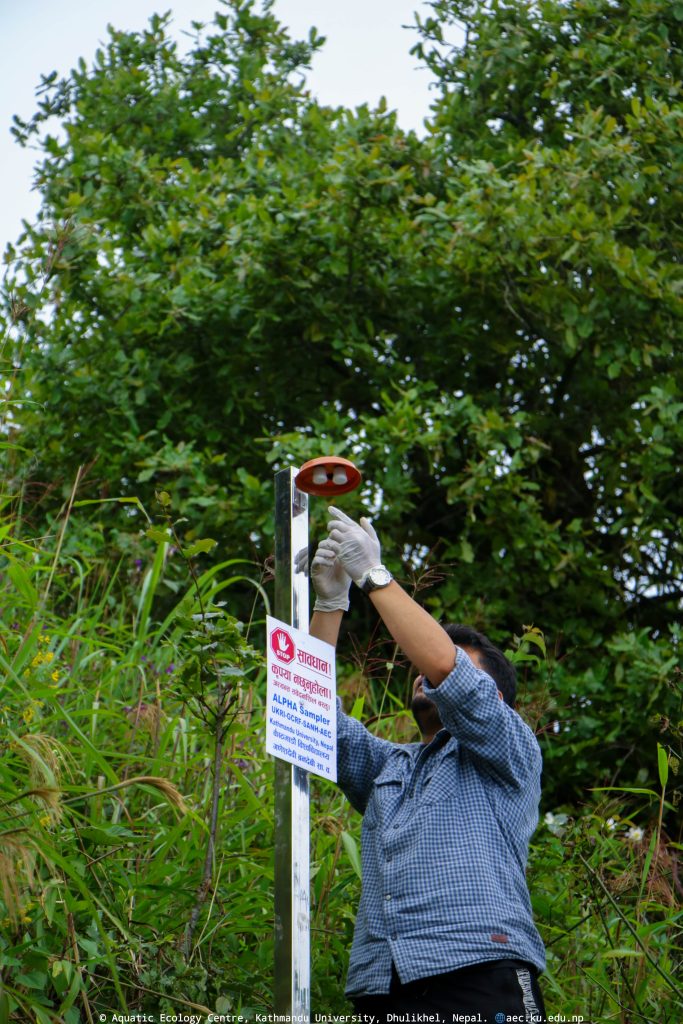
SANH Project Photo
Niche evolution of Tibetan-Himalayan Rhyacophilide (Trichoptera) II: Comparative phylogeography and Niche Differentiation of alpine/subalpine Himalospyche of the Himalyan/QTP Regions (NICHE)
Summary: The overarching objective of this research project is to study the phylogeography and potential niche diversification of selected Himalopsyche species in the Himalayan/QTP region.
Investigators: Prof. Dr. Steffen, U Pauls, Prof. Sonja Jaenig, Prof. Dr. Subodh Sharma and Dr. Ram Devi Tachamo Shah
Collaborating Partners: Kathmandu University
Funding Agency: Senckenberg Gesellschaft für Naturforschung; Senckenberganlage 25, 60325 Frankfurt, Germany
Time Frame: (2018-2021)
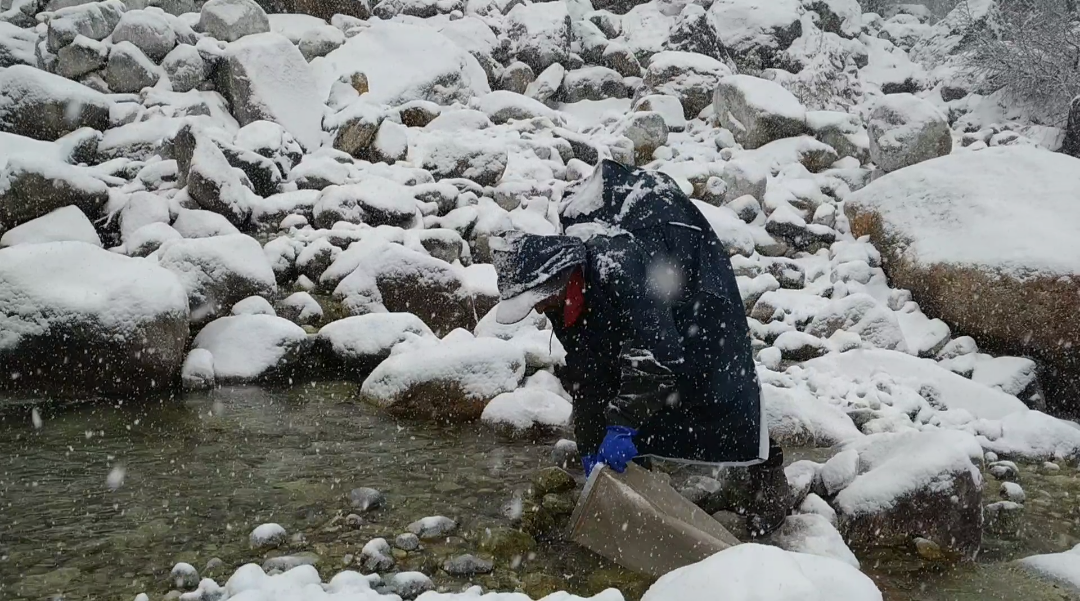
NICHE Project Photo
Sanitation and Climate: Assessing Resilience and Emissions (SCARE) Time Frame: September 2020-2024
Summary: SCARE is a joint project by Universities of Bristol, Leeds and Technology Sydney and their partners. The project is supported by Bill & Melinda Gates Foundation (BMGF). The project is based in South Asia: Nepal, Ethiopia and Uganda in East Africa.
Importance: Sanitation emits carbon and contributes to global warming – but this is poorly quantified. Sanitation systems are sensitive to climate change, and future access loss is a significant worry. When it comes to sanitation, the goal should be to maximize the benefits to public health, accessibility, and resilience while lowering emissions. SCARE is the first comprehensive study of both resilience and emissions in low- and middle-income countries.
Objectives: Estimation of greenhouse gas emissions from the sanitation chain in cities and small towns, with a focus on onsite sanitation, To identify the technology and management alternatives that would maximize emissions reduction while providing safe and dependable services, To get a better knowledge of how to enhance the resilience of sanitation services in resource-constrained towns and cities to climate change, as well as the resilience of lower-emission choices compared to present practice.
GHG Emission Measurement: Using the Modified Flux Chamber Method and onsite probes and gas analyzers, a research team led by Kathmandu University is sampling three major gases: carbon dioxide, methane, and nitrous oxide from various containment types (septic, holding, and pit latrines) in two ecological zones: Kavre and Chitwan.
Resilience Assessment: A research team led by Kathmandu University has developed an assessment tool with six domains: environment, infrastructure, community structures, operation & management, supply chains, and institutional support for various data collection methods such as geospatial analysis, household surveys, key informant interviews, and focus group discussions in nine districts, covering all ecological regions and four development regions, which will be a diverse mix of urban, small-scale, and large-scale development.
Investigators: Prof. Guy Howard, Prof. Dr. Subodh Sharma, and Dr. Anish Ghimire
Researchers: Mrs. Prativa Poudel, Ms. Sheila Dangol, Ms. Sarana Tuladhar, and Ms. Aarati Ulak.
Collaborating Partners: University of Bristol, Leeds and Technology Sydney, Kathmandu University, and GGGI Nepal.
Funding Agency: University of Bristol; Bill & Melinda Gates
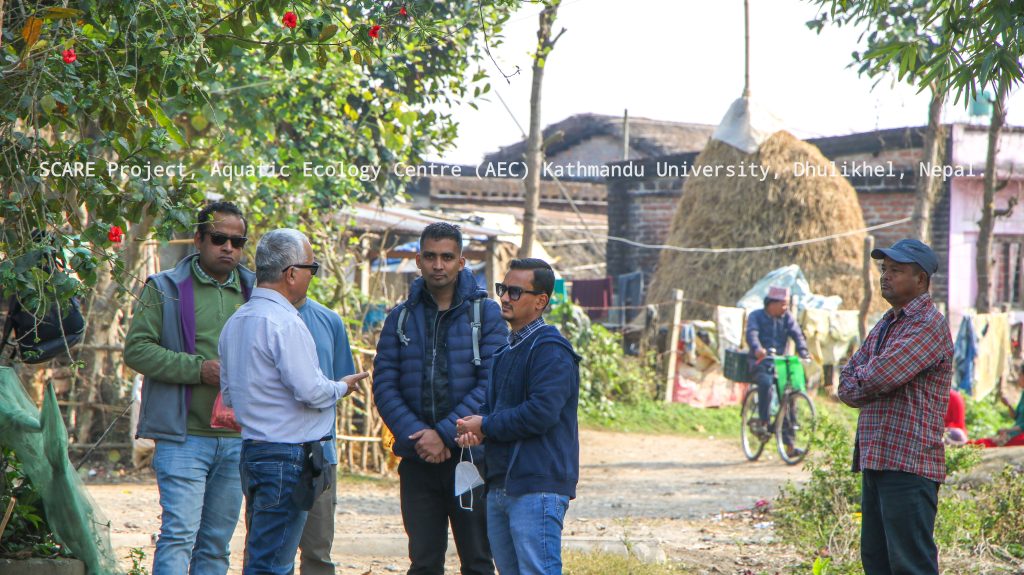 Resilience Assessment
Resilience Assessment
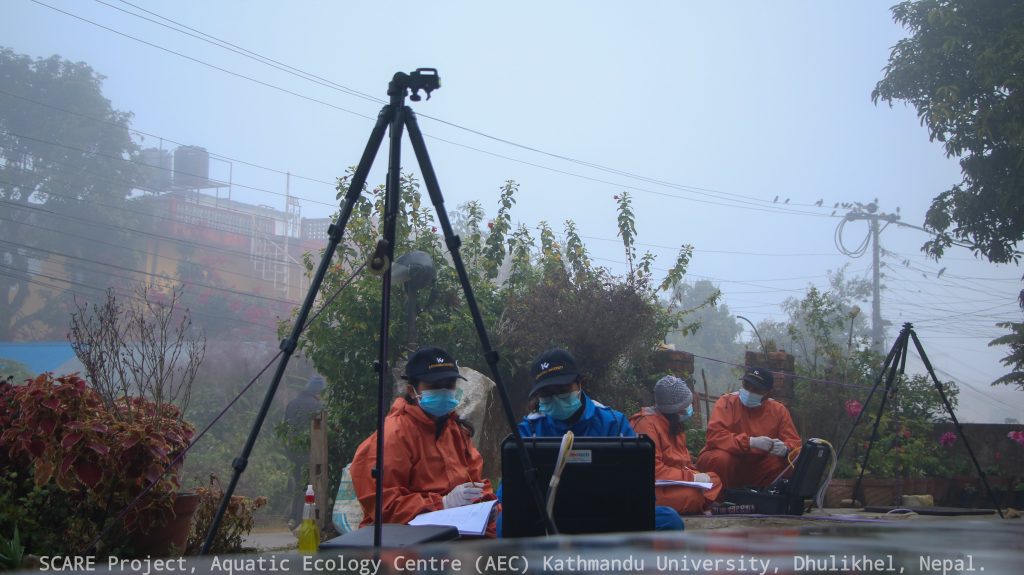 GHS Emission Measurement
GHS Emission Measurement
The Fate of Organic Carbon in Small Mountain Rivers in Nepal: Implications for Soil Erosion and Climate Change (FOCOS)
Time Frame: 2017-2023
Summary: Water and food security are vital for sustainable growth and poverty reduction. Enormous investments are made worldwide to provide long-term security for clean water supply, storage, hydroelectric generation, and reducing flooding impacts. In particular, loss of topsoil degrades land use for generations, but also accelerates CO2 release. Hence, proper development of water infrastructure can be an asset for growth and poverty reduction, and at the same time play a vital role in climate adaptation and mitigation. Our target study sites in Nepal are located in regions affected by growing competition for water resources because of the development of new hydroelectric plants, climate variability, and increasing urban and agricultural demands. Finally, the data generated through this project will be shared with development agencies and policy makers to ensure that adequate measures could be undertaken to promote economic development and well-being of local communities.
Investigators: Prof. Dr. Subodh Sharma, Mr. Rajendra Joshi, Dr. Joyanto Routh (Linköping University), Dr. Åsa Danielsson (Linköping University), and Nikolai Pedentchouk (Linköping University)
Researchers: Mr. Rajendra Bhandari
Collaborating Partners: Kathmandu University and Linköping University
Funding Agency: Swedish Research Foundation
Research Outputs: Article published on Geoscience Frontier https://www.sciencedirect.com/science/article/pii/S1674987121000955
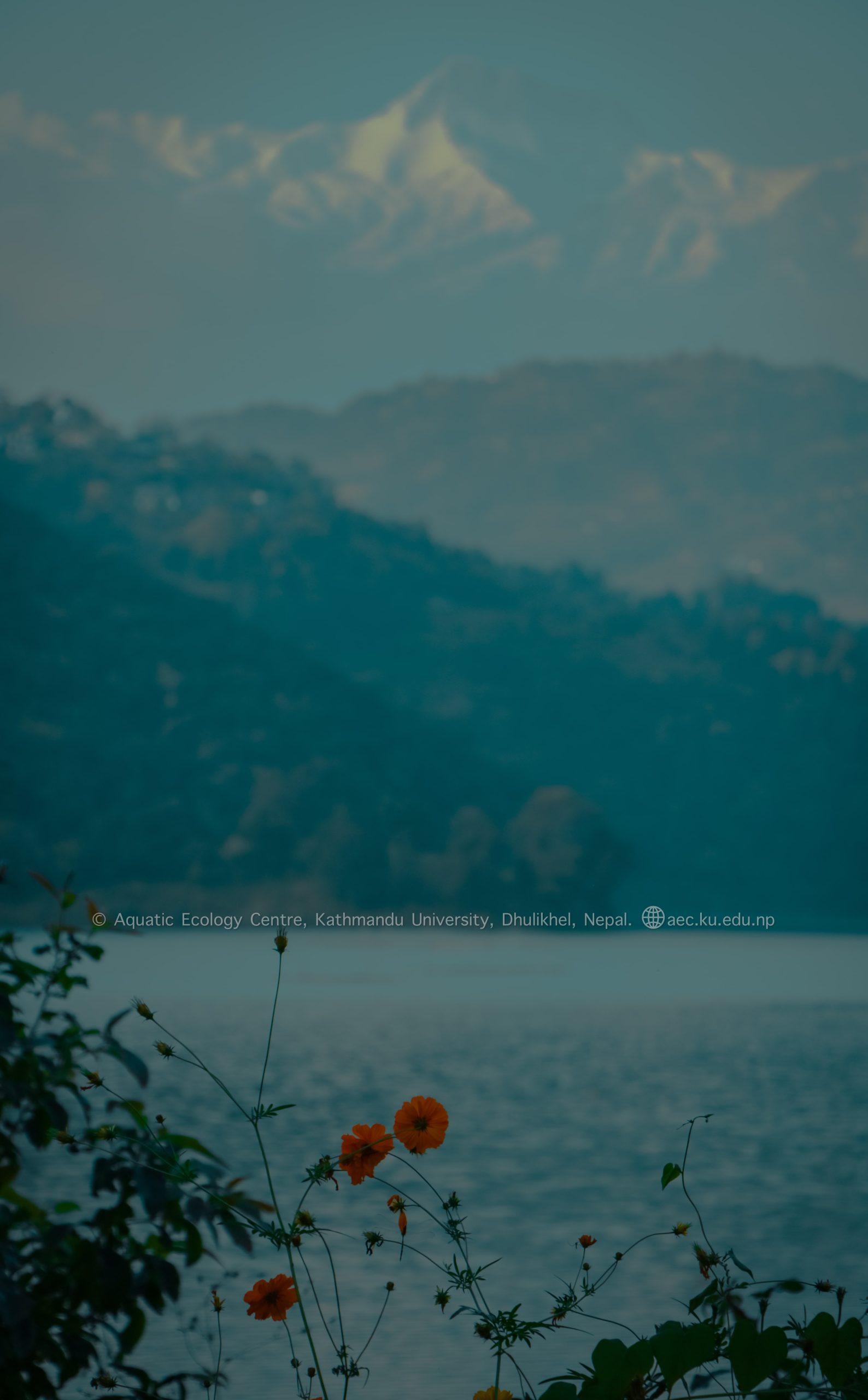
Rapti Project
Time Frame: October 2020- Present
Summary: Sand, stone, and gravel mining have wide range of impact in the biotic and abiotic components of river ecosystem. Documentation of this impact is well documented in other part of the world. This specific project aims to assess the River aggregates (Sand, Stone and Gravel Mining) Dynamics and Implications in Ecosystem Services of East Rapti River and Chitwan National Park.
Investigators: Prof. Dr. Subodh Sharma and Dr. Ram Devi Tachamo Shah
Researchers: Er. Hari Paudel, Mrs. Prativa Poudel, Mr. Prayon Joshi, and Ms. Junu Maharjan
Collaborating Partners: Kathmandu University
Funding Agency: WWF Nepal
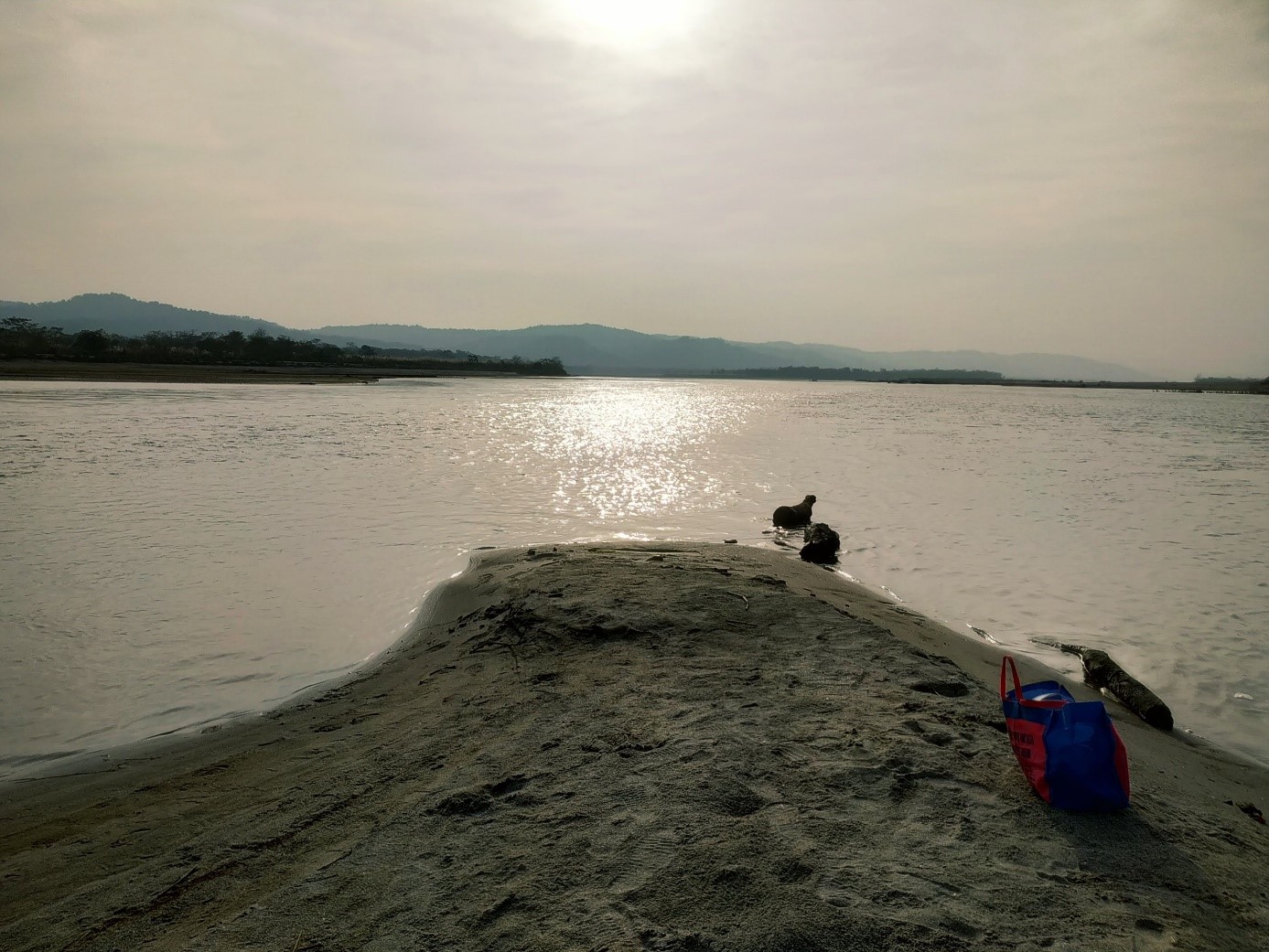
Rapti Project Photo
COMPLETED PROJECTS
1. Narayani Project
Time Frame: October 2020- January 2021
Summary:
This specific project aims to conduct River Health Assessment of Lower Narayani River (downstream of Devghat) and understand the ecological status of the river which is expected to be baseline for future Narayani River restoration work.
Investigators: Prof. Dr. Subodh Sharma, Dr. Ram Devi Tachamo Shah, Dr. Deep Narayan Shah
Researchers: Er. Hari Paudel, Mr. Prayon Joshi and Ms. Junu Maharjan
Collaborating Partners: Kathmandu University
Funding Agency: WWF Nepal
2. How Tough is WASH (TOUGH WASH)
Time Frame: November 2019- July 2021
Summary: TOUGH WASH is a project funded by Universities of Bristol. The project aims to develop indicators to measure the resilience of WASH to climate change in Low Middle Income Countries (LMIC). The project area includes Chitwan District and Annapurna Conservation Area Project.
Investigators: Prof. Guy Howard, Prof. Dr. Subodh Sharma, and Dr. Manish Baidya
Researchers: Mr. Moti Poudel
Collaborating Partners: University of Bristol and Kathmandu University
Funding Agency: University of Bristol
Research Outputs: Article published on Clean Water https://www.nature.com/articles/s41545-021-00130-5
3. River Health and Biodiversity Profiling in the Karnali and West Rapti Watersheds: Implications to Basin Planning and Sustainable Water Resource Management in the Western Nepal (PAANI)
Investigators: Prof. Dr. Subodh Sharma, Dr. Ram Devi Tachamo Shah, and Dr. Deep Narayan Shah (Tribhuvan University)
Collaborating Partners: Kathmandu University and Tribhuvan University
Funding Agency: USAID-Paani Program
4. Sustainable, Just and Productive Water Resources Development in Western Nepal Under Current and Future Conditions
Investigators: Prof. Dr. Subodh Sharma and Dr. Ram Devi Tachamo Shah
Collaborating Partners: Kathmandu University and IWMI-Nepal
Funding Agency: USAID-Nepal
Project Outputs: Structure of Benthic Macroinvertebrate Communities in the Rivers of Western Himalaya, Nepal. https://www.mdpi.com/20763263/10/4/150
5. Longitudinal Observation Study on Effectiveness of Existing Household and Community Level Water Sanitation and Hygiene (WASH) Interventions on Health Vulnerability to Climate in Jiri, Nepal
Investigators: Prof. Dr. Subodh Sharma (PI), Dr. Dhiraj Giri (Statistician), Dr. Timothy O’Brien (Statistician), and Dr. GP Bhandari (Epidemiologist)
Collaborating Partners: WHO-Nepal, Ministry of Urban Development, and Ministry of Water Supply and Sanitation
Funding Agency: DFID through WHO
6. Sustainable Natural Resource Management for Climate Change Adaptation in the Himalayan region: A Collaborative Project Among Norway, Nepal, Pakistan and Bhutan
Investigators: Prof. Dr. Roshan Man Bajracharya, Prof. Dr. Subodh Sharma, and Prof. Dr. B.K. Sitaula
Collaborating Partners: University of Life Sciences, Norway, Institute of Forestry, Tribhuvan University, Karakoram International University, Pakistan, and Royal University of Bhutan
Funding Agency: NORAD
UPCOMING PROJECTS
1. Save the Tiger! Save the grasslands! Save the water!
Investigators: Prof. Dr. Subodh Sharma and Prof. Jasper Griffioen
Collaborating Partners Universiteit Utrecht, Himalayan Tiger Foundation, Rotterdam Zoo (Diergaarde Blijdorp), VanderSat, National Trust for Nature Conservation, National Parks & Wildlife Conservation, World Wide Fund for Nature Nederland, Sensing Clues Foundation, Wildlife Institute of India, Kathmandu University, Tribhuvan University, Swansea University, ICIMOD, Office of Bardia National Park, Nature Conservation Foundation, Snow Leopard Trust, Smartphones For Water Nepal, Buffer Zone User Committee, Tharu Women Uplift Centre, Ujayalo Nepal.
Funding Agency: Nationale Wetenschapsagenda: Onderzoek op Routes door Consortia, (NWA-ORC)
